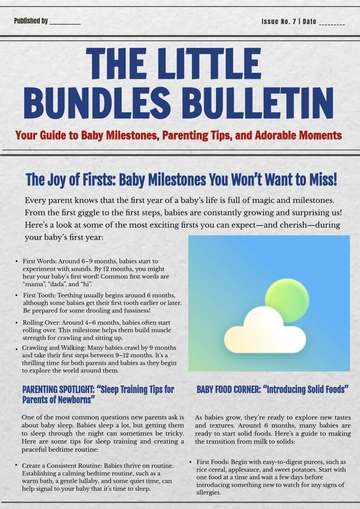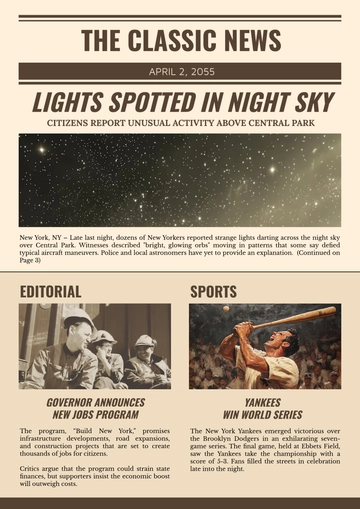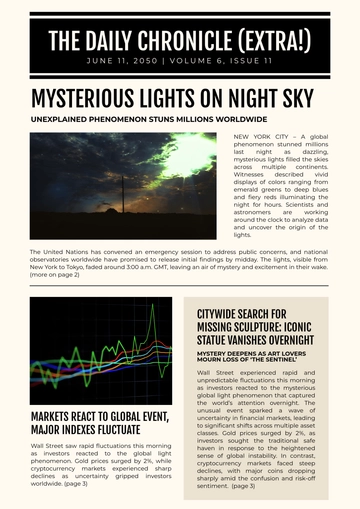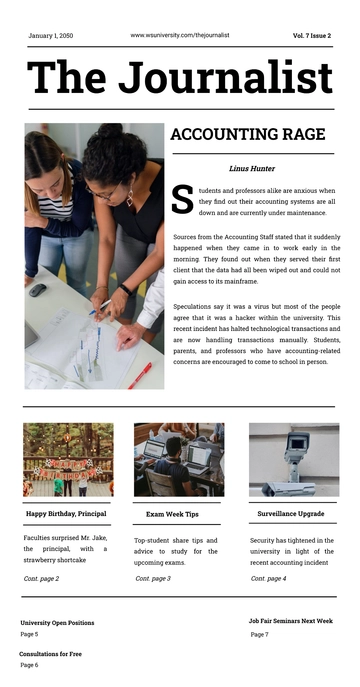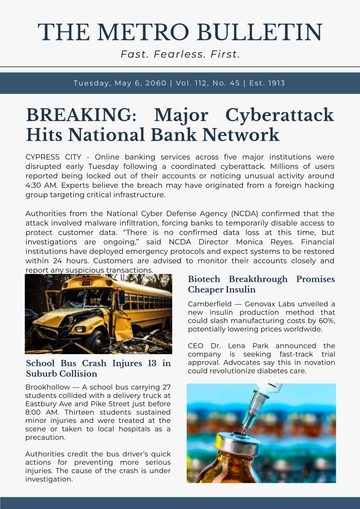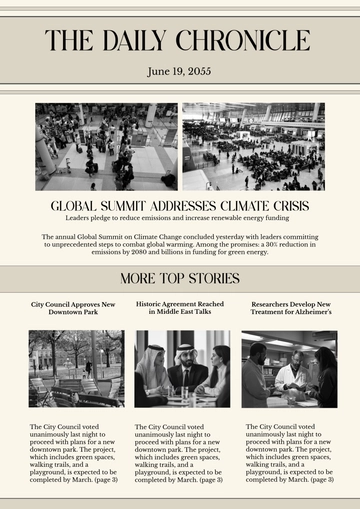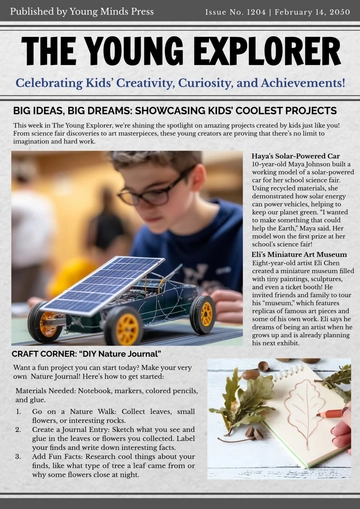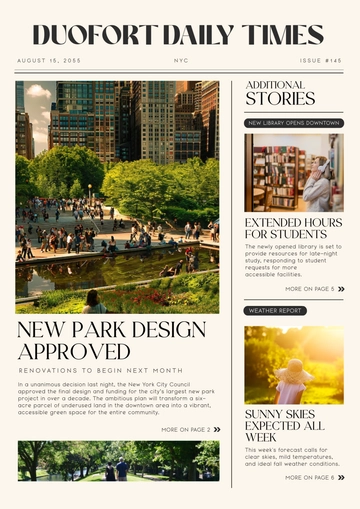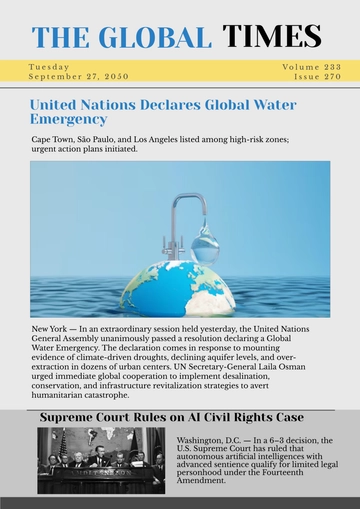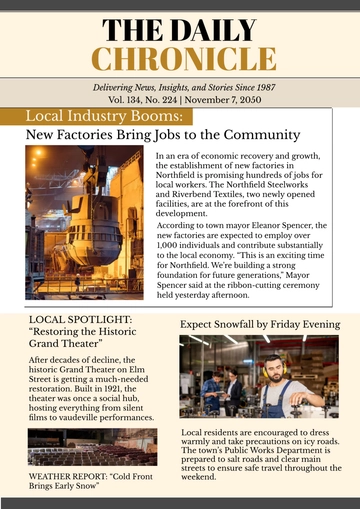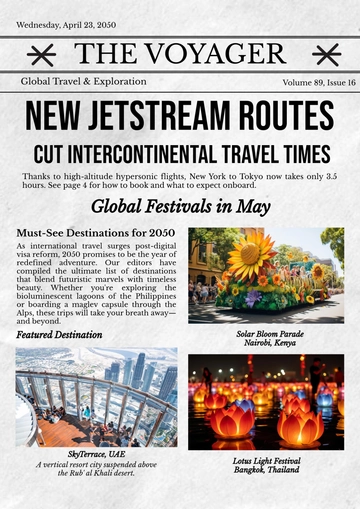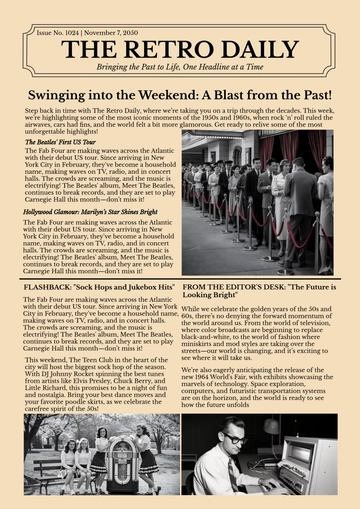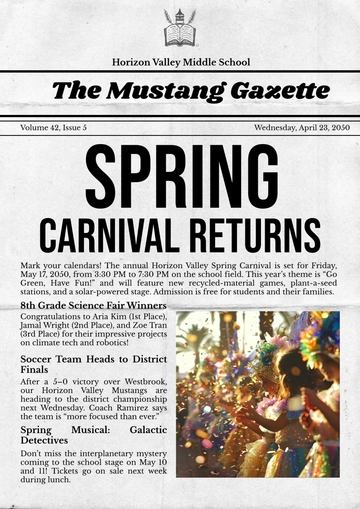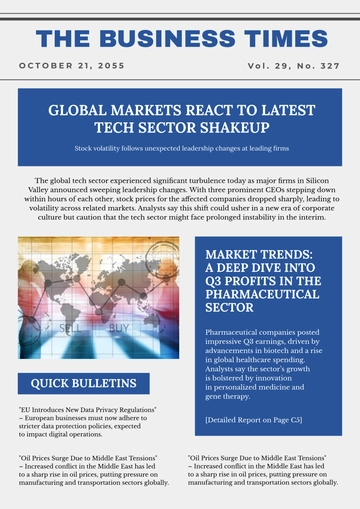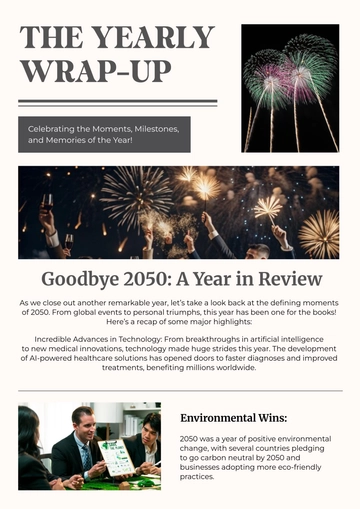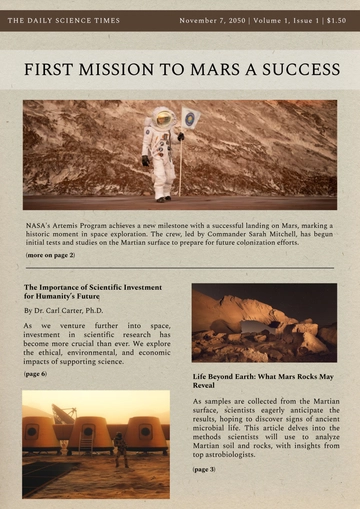Free Social Media-Friendly Newspaper Article
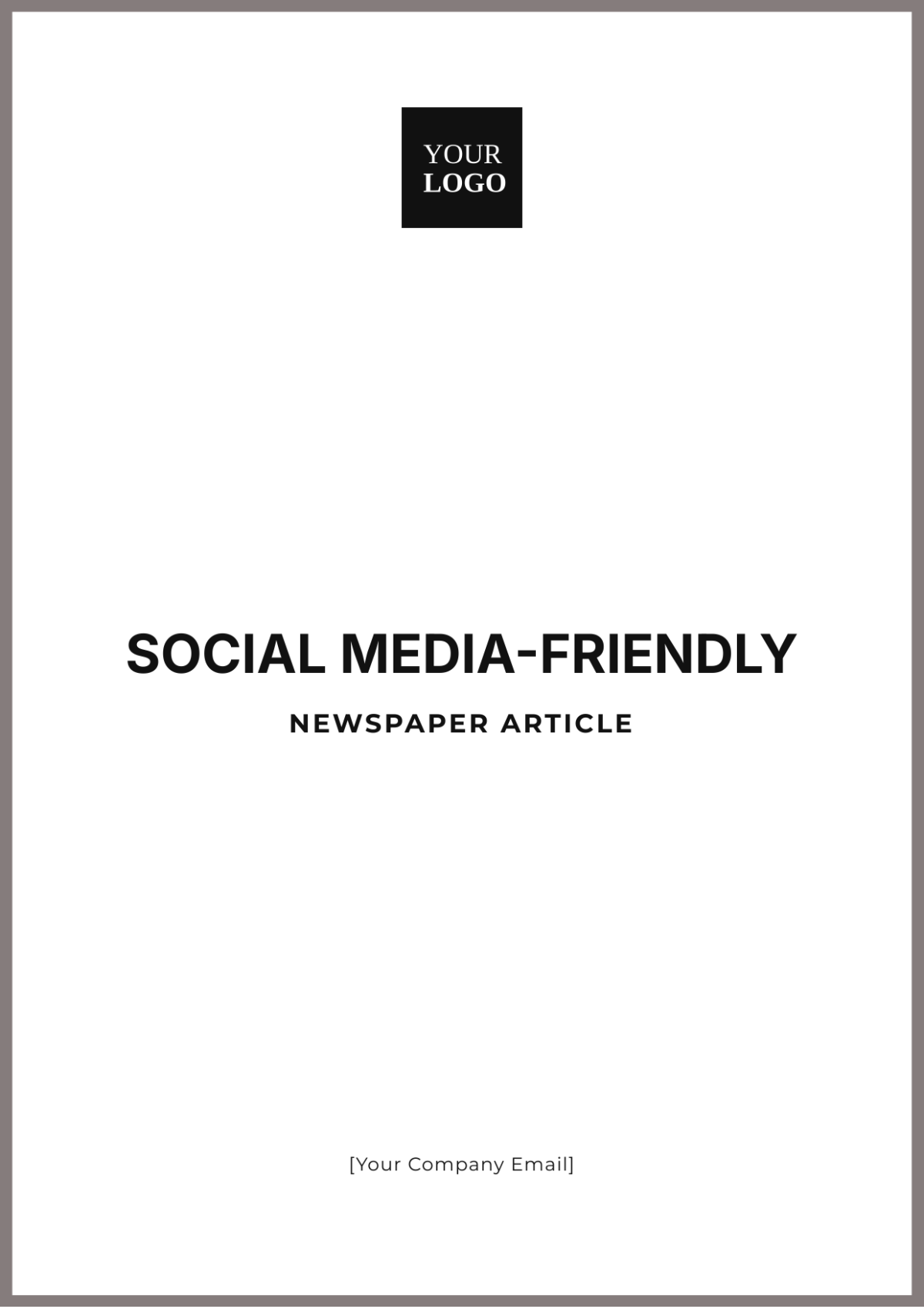
Written By: [Your Name]
The Rise of Social Media: Shaping Modern Communication
How Social Media Platforms Have Transformed Global Communication
Social media has rapidly become the cornerstone of modern communication, profoundly impacting how individuals, businesses, and governments interact. From the early days of platforms like MySpace and Friendster to the global dominance of Facebook, Instagram, Twitter, and TikTok, social media has evolved into an integral part of daily life for billions of people worldwide.
The accessibility and immediacy of social media have reshaped traditional communication models. Where once information was disseminated through print, radio, and television, today, news and content are shared in real-time across various digital platforms. This transformation has not only changed how we consume information but also how we engage with it, fostering a more interactive and participatory media environment.
The Democratization of Content Creation
One of the most significant impacts of social media is the democratization of content creation. Anyone with a smartphone can now produce and share content, from blog posts and videos to memes and live streams. This shift has empowered individuals to become influencers, journalists, and thought leaders, bypassing traditional gatekeepers such as editors and broadcasters.
Platforms like YouTube and TikTok have given rise to a new generation of creators who build large followings and monetize their content through ads, sponsorships, and direct fan support. This has led to the emergence of the "creator economy," where individuals can earn a living by producing content that resonates with their audience.
Social Media's Role in Social Movements
Social media has played a crucial role in amplifying social movements around the world. Hashtags like #BlackLivesMatter, #MeToo, and #ClimateStrike have become rallying cries for change, enabling activists to organize protests, raise awareness, and hold those in power accountable. The viral nature of social media allows these movements to gain traction quickly, often crossing international borders and sparking global conversations.
The ability to instantly share information has also brought attention to issues that might have otherwise gone unnoticed by mainstream media. For instance, the Arab Spring in the early 2010s was significantly influenced by social media, where protesters used platforms to coordinate demonstrations and share real-time updates with the world.
The Impact on Mental Health and Well-being
While social media has undoubtedly brought many positive changes, it has also raised concerns about its impact on mental health. Studies have shown that excessive social media use can lead to anxiety, depression, and feelings of loneliness, particularly among younger users. The pressure to present a perfect image online and the constant comparison to others can contribute to these negative feelings.
Moreover, the spread of misinformation and the rise of cyberbullying have highlighted the darker side of social media. Platforms are increasingly under scrutiny for their role in these issues, leading to calls for greater regulation and more robust content moderation policies.
The Future of Social Media: Trends and Predictions
As social media continues to evolve, several trends are shaping its future. One of the most significant is the growing emphasis on privacy and data security. Users are becoming more aware of how their data is collected and used, leading to a demand for more transparent and secure platforms.
Another trend is the rise of decentralized social networks, which aim to give users more control over their data and reduce reliance on corporate-owned platforms. Blockchain technology is playing a key role in this shift, enabling the creation of platforms that are not controlled by a single entity.
The integration of artificial intelligence (AI) and augmented reality (AR) into social media is also set to change how we interact online. AI-powered algorithms are becoming more sophisticated in curating content, while AR is enhancing the way we experience social media, from virtual try-ons to immersive filters.
Conclusion: A Double-Edged Sword
Social media has undoubtedly transformed the way we communicate, offering unprecedented opportunities for connection, creativity, and activism. However, it also presents challenges that society must address, including the impact on mental health, the spread of misinformation, and the need for better regulation.
As we look to the future, it is clear that social media will continue to play a central role in our lives, for better or worse. The key will be finding a balance that maximizes its benefits while mitigating its risks, ensuring that social media remains a tool for positive change in the world.
- 100% Customizable, free editor
- Access 1 Million+ Templates, photo’s & graphics
- Download or share as a template
- Click and replace photos, graphics, text, backgrounds
- Resize, crop, AI write & more
- Access advanced editor
Create engaging, shareable content with the Social Media-Friendly Newspaper Article Template from Template.net. This editable and customizable template is designed for newspapers looking to reach a digital audience. It offers a concise, visually appealing format that integrates social media elements, ensuring your article is optimized for online sharing and engagement—Editable in our AI Editor Tool for seamless customization.
